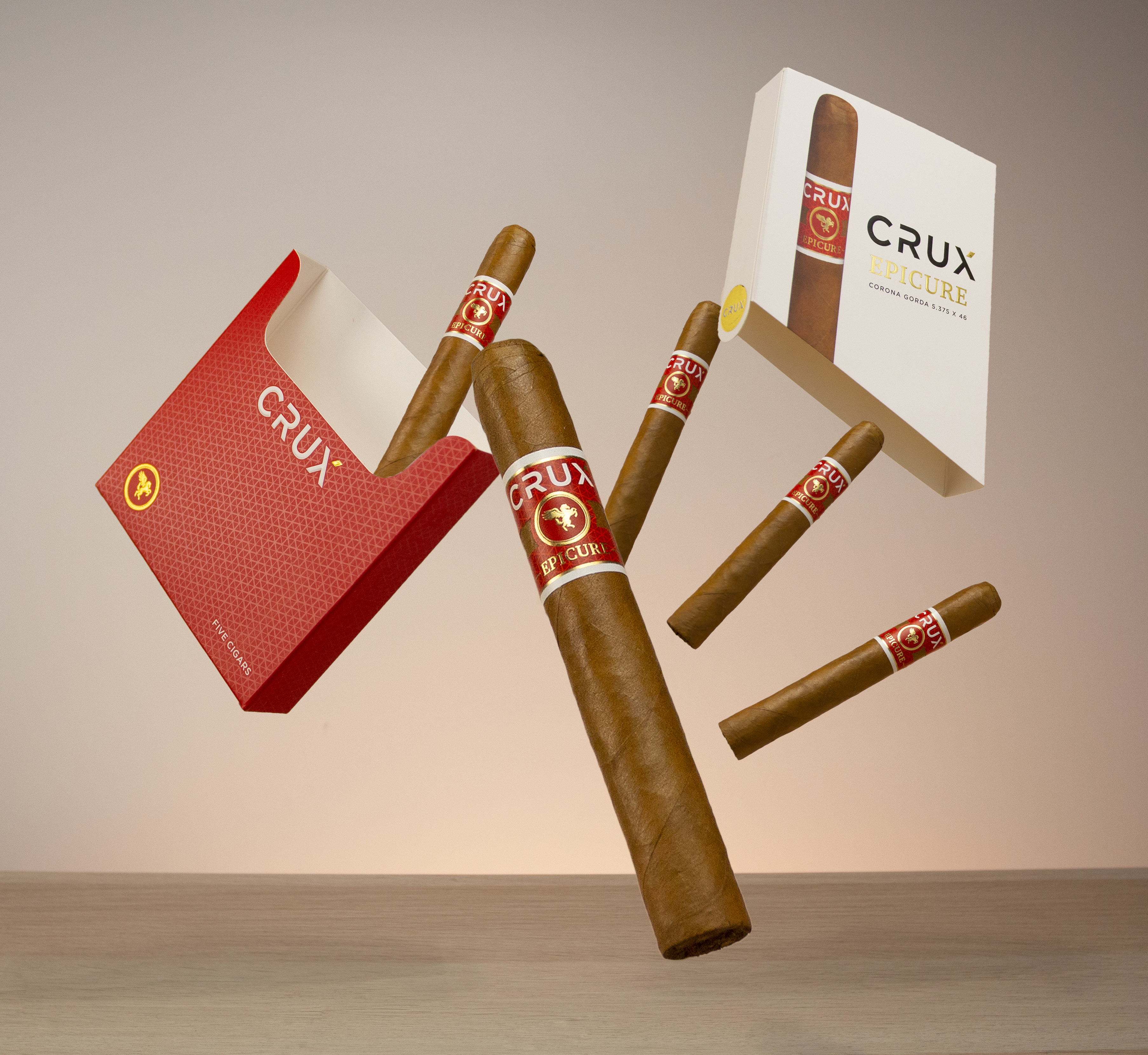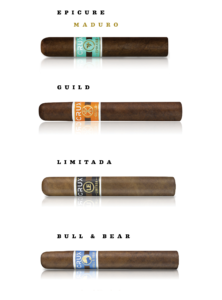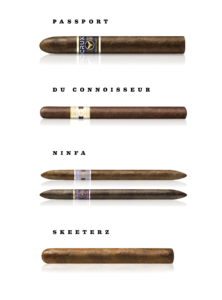
Crux Cigars At A Crossroads
Jeff Haugen opened his first retail store, Tobacco Grove, in Minneapolis, in 1992. He had just graduated from college, and admittedly was flying blind. “I dove in head first and realized I had no idea what I was doing in business, let alone cigars,” he says.
The first few years were difficult, as Haugen struggled to develop customers and generate revenue. By seeking and accepting advice from friends and suppliers, however, he managed to keep the business going through the tough times.
“I leaned on people smarter than me for mentorship,” he says. “I felt so blessed to be in a business where both my manufacturers and customers were so eager to help me succeed. I was now energized and focused to build a successful business.”
His persistence paid off, and he held on long enough to ride the roller coaster years of the “cigar boom,” as well as weather its decline. And having established Tobacco Grove on a firm footing, Haugen’s plans to expand beyond the retail business began to take shape.

He says: “I’ve always had a desire to develop a brand of my own. I believe cigars create connections between people from all walks of life. I understand, through my own retail experience, that cigar stores build community. I thought it would be an amazing experience to be part of cigar shop communities all over the world. My own brand would become the vehicle.”
Like others who envisioned making cigars, but had neither roots nor experience in that segment of the industry, Haugen immersed himself in the manufacturing community in Nicaragua. From 2012–2014 he spent two to three months out of every year in in the Central American country absorbing everything he could about the process, from seed to cigar. And five years after the launch of Crux Cigars in 2014, he says he’s still learning, noting, “The education continues.”
The business of Crux is a family affair. Jeff Haugen is the founder and president. Casey Haugen, who worked with Jeff in the retail business, is vice president, and Tony Haugen, another cousin who also worked on the retail side, is transitioning from Midwest sales manager to key account manager. The three Haugens currently handle all the sales and marketing themselves, but they are planning to hire four to six sales representatives in the next 14 months.
The name Crux derives from the Latin term for “cross,” and has taken on the meaning of a crossroads, reminding Haugen that life is a series of crossroads, always searching, until you find your Crux.
Produced by the Plasencia family at the La Catedral factory in Nicaragua, Crux is currently composed of nine distinct series. The premier lines are Epicure, offered in both Habano Natural and San Andres Maduro; Guild,produced by their top artisans in five popular vitolas; and Limitada, which, as the name implies, is a limited-release series featuring a distinctive Engañoso wrapper leaf.

Bull & Bear and Passport are two lines that offer the high standard of Crux quality at a more modest price point.
Du Connoisseur and Ninfa each specialize in elegant, narrow ring gauge cigars, while Skeeterz is a wallet-friendly, handmade 4 x 32 purito, affording a quality short smoke on the go.
The various blends run the gamut from the mild and sweet Skeeterz to the bold style and larger ring gauges of the Bull & Bear, an all-Nicaraguan puro. The two Epicure series are the flagship lines, medium-bodied, and ranging from smooth and creamy in natural to rich and complex in maduro. The Guild is savory and full bodied, while the Passport is complex and floral.
A feature that sets Crux apart from other brands is the embrace of narrow ring gauge cigars, offered in two different lines. Du Connoisseur is a series of four Lanceros, from the just-over 5 x 35 #3, to the 7 1/2 x 38 #1. The 7 x 33 Ninfas pay homage to the traditional Cuban cigars of the same shape, adding a taper at the head and the foot. These were the very first cigars in the Crux lineup.
At present, the annual production of Crux cigars is 450,000, with a projection of 750,000 for 2020. The cigars are being sold by roughly 250 retailers nationwide. The Haugens are targeting 350 in 2020.

In early 2019, Crux went through a re-branding, with Jeff acknowledging they had to look at everything they were doing—“both good and bad.” The decision was made to “live test” the new look with both cigar smokers and people who don’t smoke cigars, and that feedback was incorporated into the redesign.
“We wanted our new branding to be clean, elegant and timeless,” he says. They achieved their objective with a look that is uncluttered, modern and still within the realm of being classic.
The brand refresh also includes an interactive feature on their website, captioned #findyourcrux, where viewers can upload a photo or video of their favorite cigar experience, or they can post it on social media. Winners are announced monthly.
Having grown the brand to nine series, with an occasional release of a new Limitada, the company is focused on the current brand portfolio. That doesn’t mean, however, that they’re not actively expanding the scope of the business.
“Our focus will be to improve our entire process of doing business with our retail partners as well as our manufacturing partners, ” Jeff says. “We look at our company future, not in three to five years, but in decades. We are a family business and I want to make sure this business is built for our entire family.”
The company ethos is best summed up in this statement from their website: “We realize when you smoke a Crux, you invest an hour of your life to experience our cigars. Our commitment to you is building cigars of the highest quality and craftsmanship, beginning with only the finest of premium tobacco.”
You could say that gets to the Crux of their story.
Visit Crux Cigars at cruxcigars.com.
